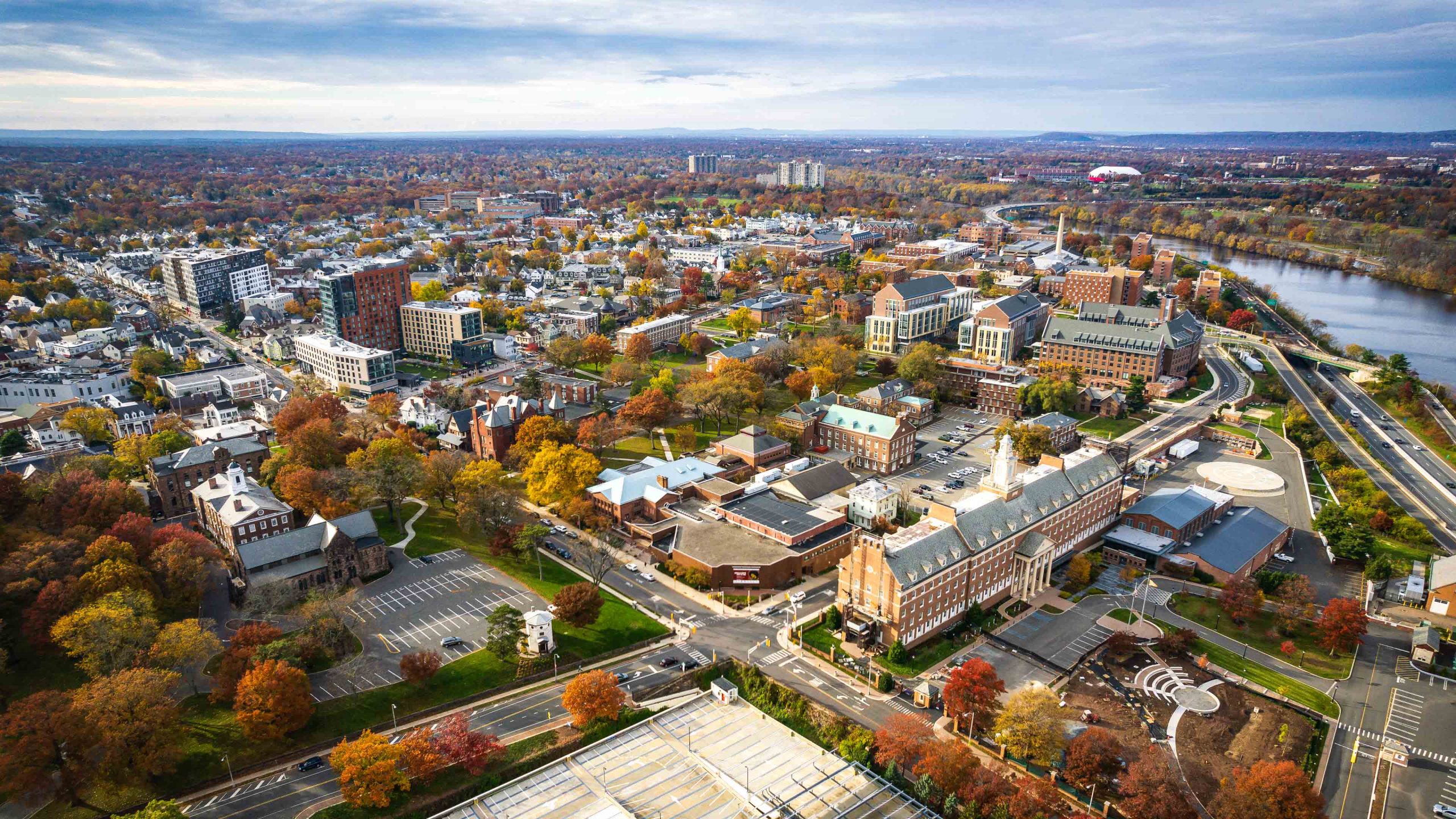Graduate Program | Public Policy
Public Policy Joint and Dual Degrees
The Bloustein School offers dual degrees in conjunction with the graduate policy program:
Urban Planning and Public Policy (MCRP/MPP)
Combining the Bloustein School’s Master of City and Regional Planning (MCRP) and Master of Public Policy (MPP) leads to a three-year dual degree option. Students are accepted independently to both graduate programs after providing a separate application to each, but share concentrations, course electives, and requirements.
The three year, 72 credit dual degree program is a saving of 24 credits compared to earning the 48-credit MCRP and the 48-credit MPP degrees separately. Students are required to take four methods courses, spanning the core courses in both programs. The required methods courses are Basic Quantitative Methods, Research Design, Planning Methods, and Applied Multivariate Methods. If a student places out of Basic Quantitative Methods, they must take another methods course to complete the 12 credits. Methods courses beyond the 12 minimum credits are permitted and count as electives or concentration courses.
Public Policy and Public Informatics (MPP/MPI)
Combining the Bloustein School’s Master of Public Policy (MPP) and Master of Public Informatics (MPI) degrees leads to a 60 credit, two-and-a-half year dual degree option. This is a savings of 24 credits – a full year -- relative to completing both degrees individually.
Public Policy and Social Work (MPP/MSW)
The dual MPP/MSW degree program offers students the opportunity to develop advanced policy practice skills with a focus on social justice and social welfare policy. This 81-credit program leads to both master of public policy (M.P.P.) and master of social work (M.S.W.) degrees in three years of full-time study. This is a savings of 27 credits (9 courses) compared to earning the 48-credit MPP and the 60-credit MSW degrees separately. The Bloustein School accepts four MSW courses towards the MPP degree and the School of Social Work accepts five MPP courses towards the MSW degree. This dual degree complements and enhances both degree programs by contributing to specialized knowledge and practice skills and supporting expanded career opportunities for students.
Public Policy and Law (MPP/JD)
The Rutgers Law Schools at Camden and Newark and the Bloustein School offer a dual-degree program designed for students who are interested in law and public policy. This is a savings of 24 credits (one year) compared to completing the two degrees separately.
Public Policy and Business Administration (MPP/MBA)
Combining the MPP at the Bloustein School and the MBA at Rutgers Business Schools leads to a three-year 75-credit dual-degree option. This is a savings of 33 credits compared to earning the 48-credit MPP and the 60-credit MBA degrees separately.
Public Policy and Rutgers School of Public Health (MPP/MPH)
Combining the MPP at the Bloustein School and the Master of Public Health (MPH) at the Rutgers School of Public Health leads to a 66-credit dual-degree option that can be completed in two and a half years. Note that this is a savings of 27 credits compared to earning the 48 credit MPP and the 45 credit MPH degrees separately.Students are accepted independently to both graduate programs after providing a separate application to each, but share concentrations, elective courses, and requirements.
Joint BA or BS and Master of Public Policy Program
The Bloustein School, in cooperation with the Rutgers School of Arts and Sciences and the Rutgers School of Environmental and Biological Sciences, offers a joint program that enables students to earn the bachelor of arts or science and the Master of Public Policy degrees in five years of full-time enrollment rather than the normal six. This (3-1-1) five-year program gives exemplary students the opportunity to complete their liberal arts education while preparing for a career in public policy.







